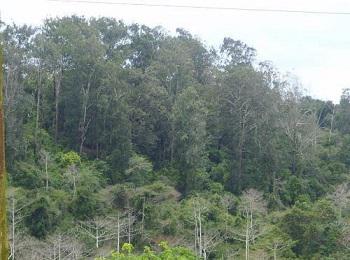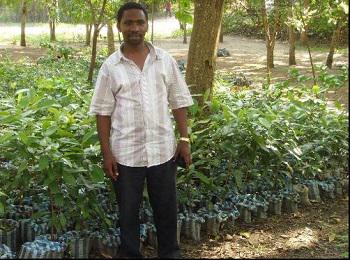Leonard Gastory
Other projects
The project has been designed to deliver environmental education to primary school children and teachers, train and expose them to forest and community conservation activities.

Kisarawe district is among the six district of the Coastal Region in Tanzania. The district comprises of four forest reserves both owned by the central government. Being close to the Dar es salaam City, the district experience heavy deforestation especially for those forests surrounded by villages where by trees are cut down in big numbers for daily domestic and business requirements of urban dwellers and villagers themselves. On the other hand, routine tree planting seems not to be a priority to many people due to low education, awareness and participation of the public on environmental conservation issues. Other factors that pose a serious concern include uncontrolled forest fires caused by farmers while clearing their farmlands, fires started by hunters in bush and forests and fires as a result of honey collecting activities.

A number of initiatives have and are continually being done to restore the natural environment and correct the previous mistakes by the government of the United Republic of Tanzania as well as the local and international conservation interest NGOs and CSOs. However most of the initiatives are designed to involve adults in the conservation efforts. Neither school programs nor community based activities have been designed to involve children in the awareness and conservation process despite of their importance for future forest and general environment conservation. This programme does acknowledge the importance of raising environmental awareness among primary school kids and teachers so as to ensure their participation in measures to protect, preserve and sustain the environment and its resources. The overall aim is to create an environmentally active generation for sustainable development.
The programme will provide basic environmental education to primary school children situated close to the Kazimzumbwi forest reserves in Kisarawe along with forming school-children’s environmental clubs. Further more, the programme will establish tree nurseries at school grounds and provide an opportunity for children to practice outdoor environmental conservation activities. It is expected that educated and trained kids will continually have positive impacts and act as watchdogs to the environment at school grounds, residences and reserved areas.
For sustainability, the programme will capacitate school environmental teachers on forestry conservation and its ecosystem. Increased capacity amongst environmental teachers will bring about continuous improvements on environmental awareness and conservation efforts.
The project will not be instructional in the traditional sense; rather, will facilitate participatory decision-making and locally appropriate initiatives by seeking out local responses from main stakeholders.